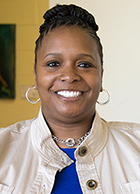
Off-Cohort Students: Strategies to Increase Engagement
By Taheera N. Blount and Jennifer C. Barrow | January 2023

 School counselors can support and develop programs that specifically target the ever-expanding needs of students that are overage and off-cohort with their graduating class. Not graduating from high school has severe repercussions for students, including increased rates of unemployment, poverty, incarceration, health complications, and lost earnings (see Sum et al., 2009). We offer practical strategies for school counselors to support off-cohort students to increase student engagement academically.
School counselors can support and develop programs that specifically target the ever-expanding needs of students that are overage and off-cohort with their graduating class. Not graduating from high school has severe repercussions for students, including increased rates of unemployment, poverty, incarceration, health complications, and lost earnings (see Sum et al., 2009). We offer practical strategies for school counselors to support off-cohort students to increase student engagement academically.Rumsey and Milsom suggest group counseling to improve attendance, academics, social support or other identified challenges within the school environment. The first intervention involves conducting small-group counseling meetings. Thus, school counselors would need to identify the ninth- or tenth-grade students who are off cohort with their graduating class. Based on this list, host intensive small-group meetings with the selected students every two or three weeks. Within the first group meeting, explain that the purpose of the group is to help students to improve their academic performance. Also explain to students why they have been selected, and how this group will provide tools to increase their academic, social/emotional, and career goals. During the first meeting, the school counselor can assist students with developing targeted, specific goals and allow the student to identify barriers to achieving these goals. Within this discussion, allow group members to explore strategies to overcoming identified challenges. To help students feel supported and held accountable, school counselors can collaborate with teachers by providing each subject teacher with student goals for the specified class, and monitor the status of students’ progression towards the identified goals. Prior to the biweekly meeting with students, the school counselor can check in with teachers about students’ development progress. During the meetings, the school counselor can have a discussion with students regarding their thoughts and feelings about their progress. If needed, provide students with additional resources.
As meetings continue, school counselors can provide students with their academic transcripts to determine how many credits they need to be promoted to the next grade level and graduation requirements. Other group meetings can focus on organization, time management, study skills, and helping students recognize the connection between careers and the world of work. We suggest meeting with students every three weeks for a nine-week grading period and bi-weekly for a six-week grading period.
Another intervention that would be suitable for supporting students toward high school completion involves increasing students’ financial literacy. Students need to know the basic principles of finances; they should understand how what they earn helps support the lifestyle they desire. One strategy would be to invite a banker from the local state employees credit union to serve as a guest speaker and educate students about the basic rudiments of financial management. The banker can provide students with information about spending, making choices between wants and needs, how to balance a checkbook and management of funds.
Students who are off cohort typically have heard about attending college, but this task might feel unattainable to them. Therefore, to ensure that students receive adequate exposure regarding the college and career readiness process, school counselors can plan a college field trip with the selected group of off-cohort students. We recommend taking students on a field trip to at least two colleges/universities, including a community college and a four-year university. During this visit, the college admission counselor can share admission requirements, cost of attendance, student involvement on campus, and financial aid opportunities.
Upon the completion of the group intervention, to commemorate the experience, host a celebratory reception in which students are honored for their progress toward academic achievement. The school counselor can invite grade-level school administrators to provide encouraging remarks related to students’ progress in the program.
We hope school counselors find these strategies applicable to increasing student engagement so that students who are off cohort can graduate from high school with their respective cohort.
Taheera N. Blount, Ph.D., and Jennifer C. Barrow, Ph.D, are with North Carolina Central University. Contact tblount5@nccu.edu.